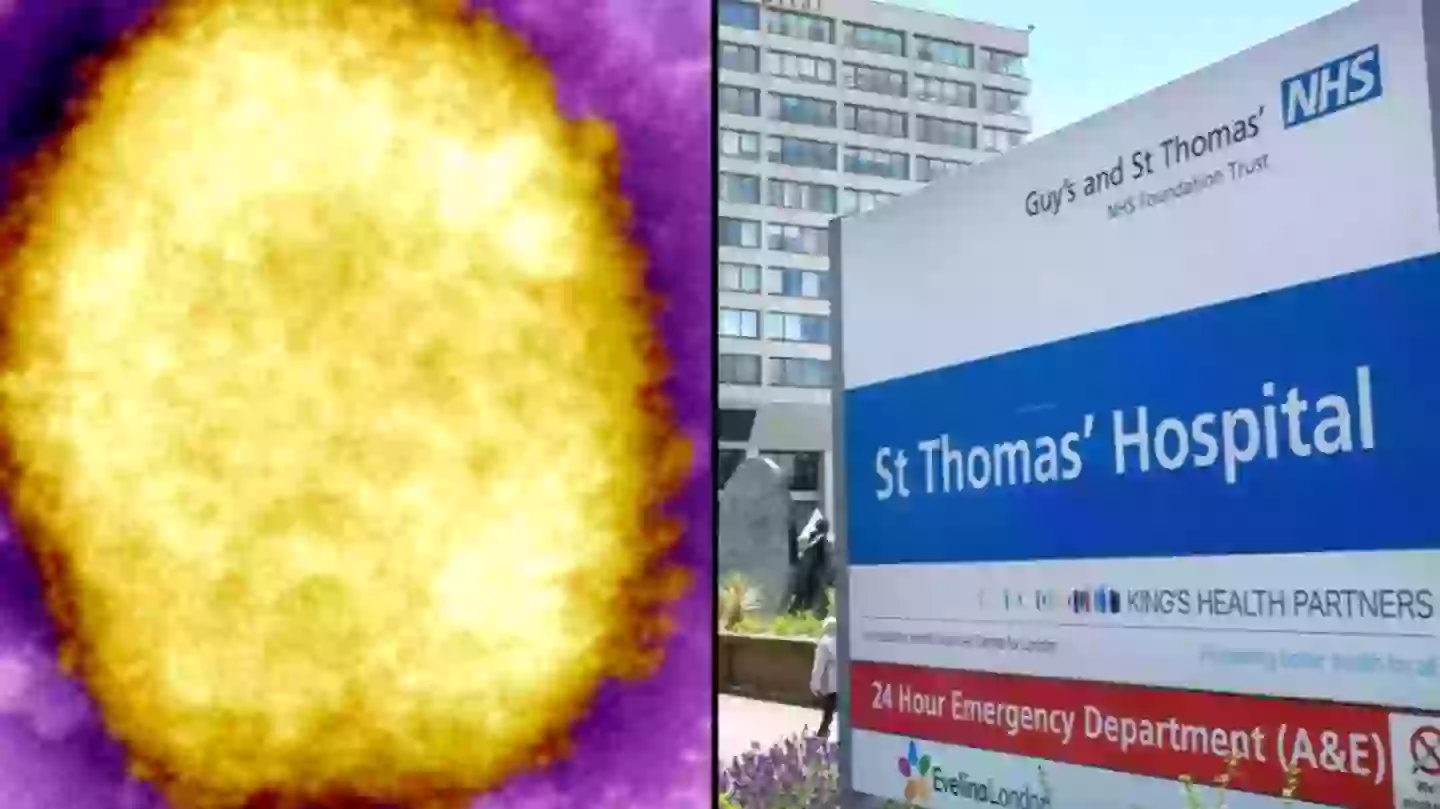
The UK Health Security Agency (UKHSA) has confirmed a rare case of monkeypox in England.
The person diagnosed with the viral infection is receiving care at the expert infectious disease unit at the Guy's and St Thomas' NHS Foundation Trust in London after travelling to the UK from Nigeria, where they are believed to have contracted the infection.
Initial symptoms of monkeypox include fever, headache, muscle aches, backache and exhaustion. Those diagnosed can also develop a rash which usually starts on the face before spreading to other parts of the body.
The infection is considered similar to human smallpox and those diagnosed with monkeypox usually only suffer mild illnesses, but severe illness can occur in some individuals.
Advert
Experts at the UKHSA have assured they are monitoring the case and working closely with NHS colleagues to get in touch people who might have been in close contact with the individual prior to their diagnosis.
Dr Colin Brown, director of clinical and emerging infections at the UKHSA, explained it is important to point out that monkeypox 'does not spread easily between people and the overall risk to the general public is very low'.
In a statement on the matter, Dr. Brown continued: "We are working with NHS England and NHS Improvement (NHSEI) to contact the individuals who have had close contact with the case prior to confirmation of their infection, to assess them as necessary and provide advice."
“UKHSA and the NHS have well-established and robust infection control procedures for dealing with cases of imported infectious disease and these will be strictly followed," he continued.
Advert
The first case of monkeypox in the UK was recorded in September 2018 and involved an individual who was also believed to have contracted the infection in Nigeria.
Dr Nicholas Price, director NHSEI high consequence infection diseases (airborne) network and consultant in infectious diseases at Guy’s and St Thomas’, explained the most recent patient is being treated in the hospital's specialist isolation unit by expert clinical staff with strict infection prevention procedures.
“This is a good example of the way that the high consequence infectious diseases national network and UKHSA work closely together in responding swiftly and effectively to these sporadic cases," he commented.
The NHS explains monkeypox is mainly spread by wild animals in parts of west or central Africa, meaning the risk of catching it in the UK is low.
Topics: Health, UK News, Travel, World News
